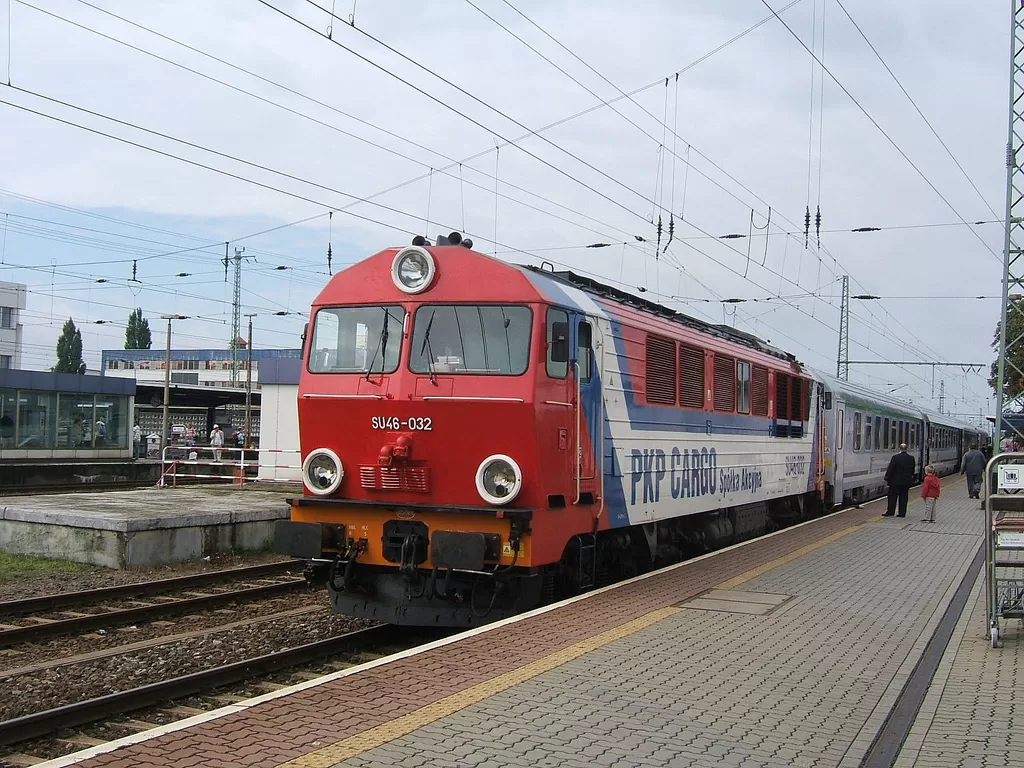
Source: Trevor
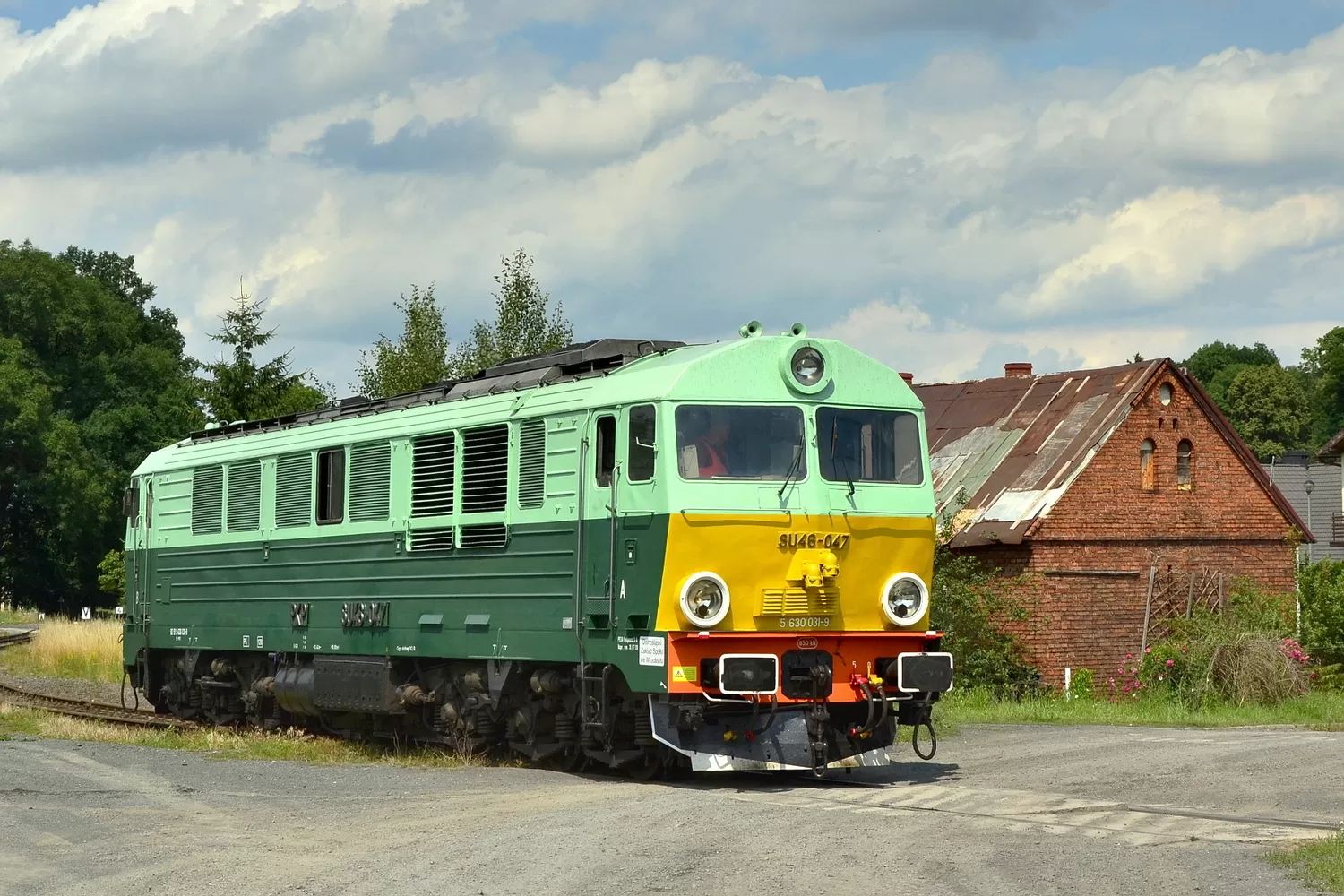
Source: Damian Szarek
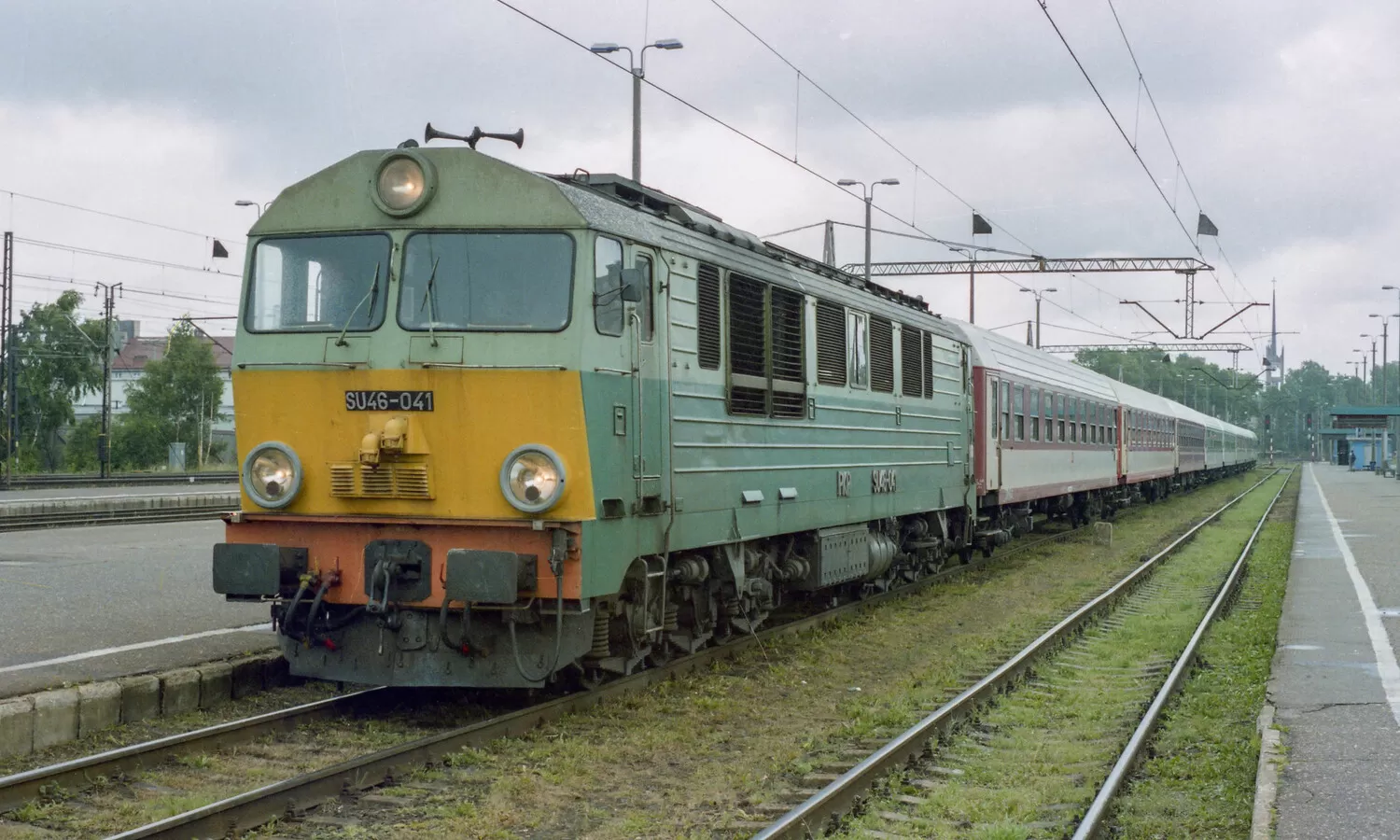
Source: John Mulrine
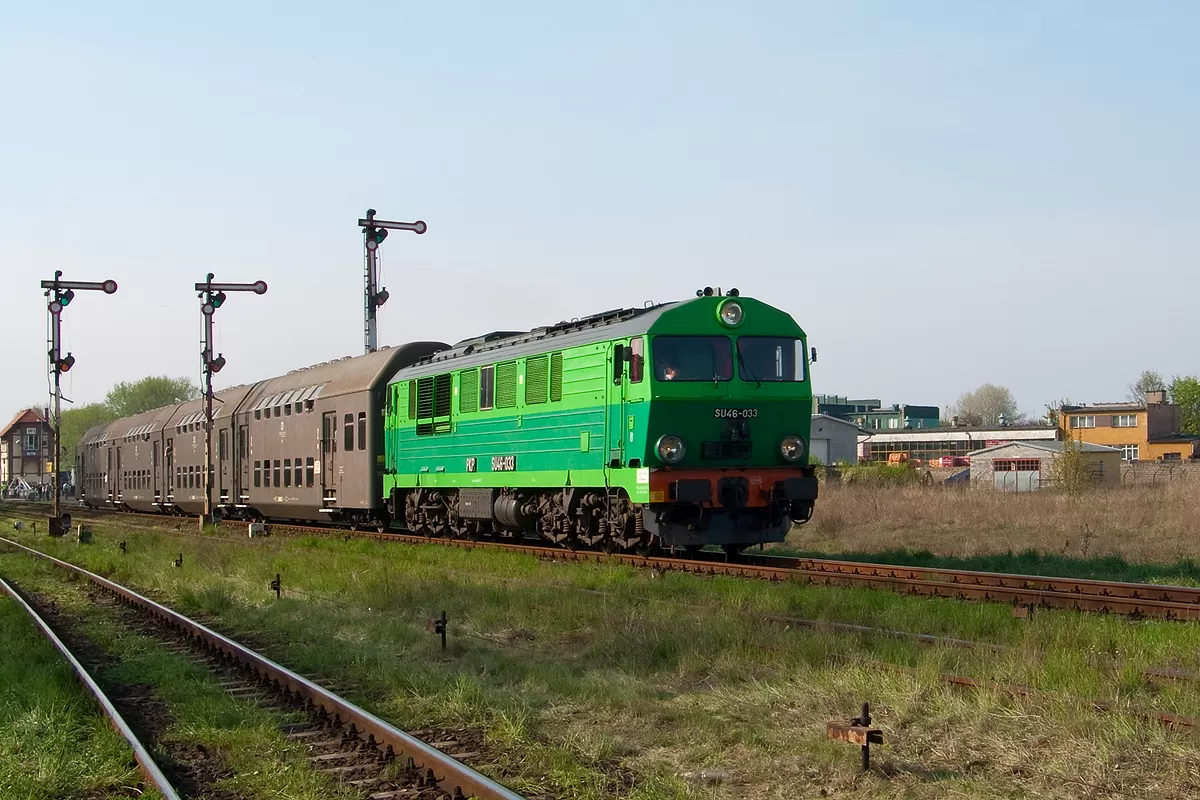
Source: Grzegorz Kochan
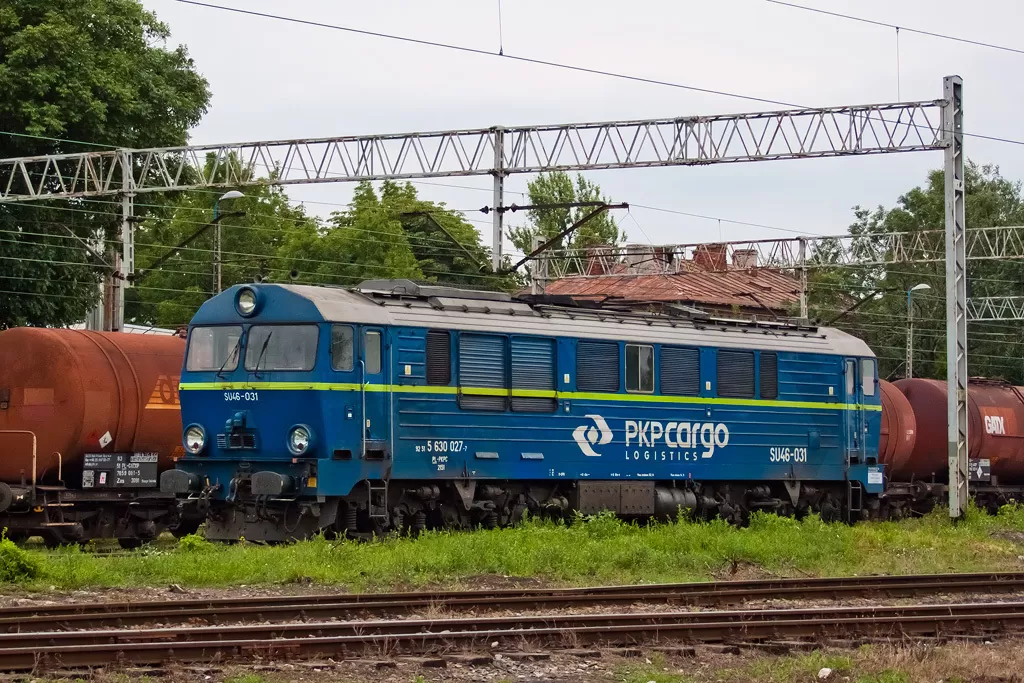
Source: Sigman
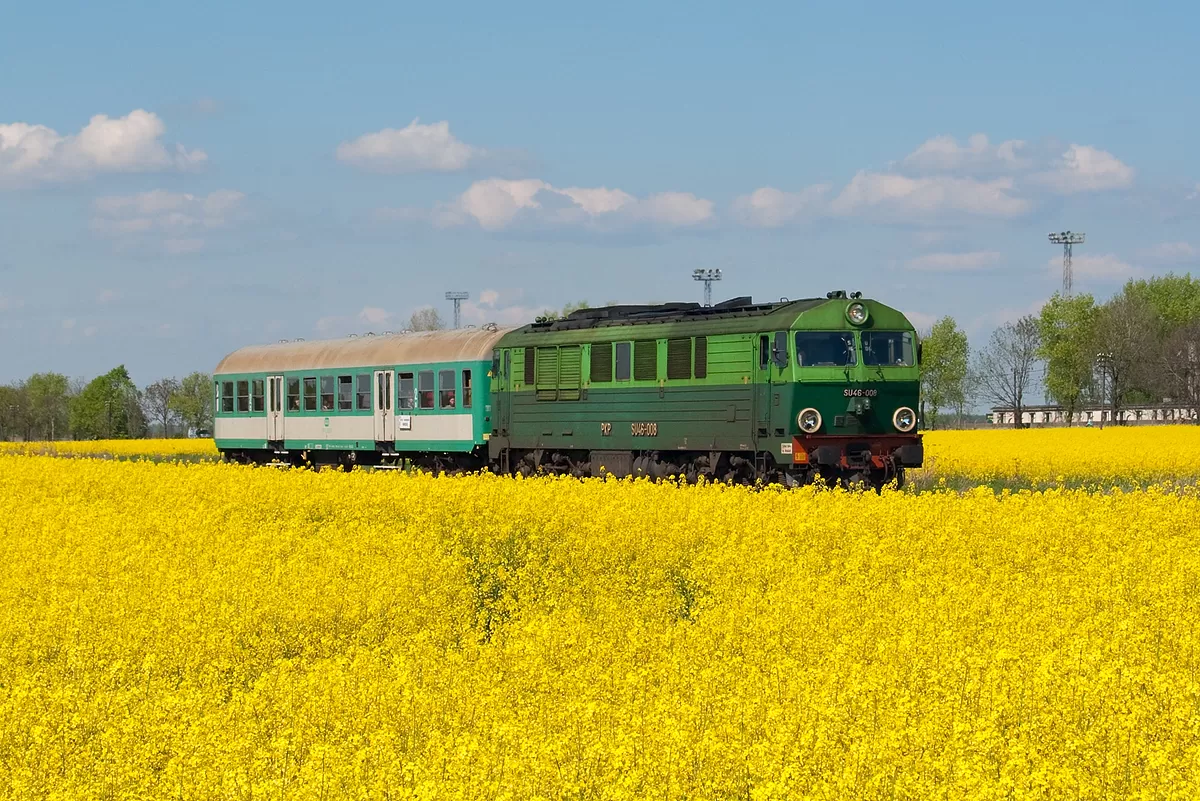
Source: Grzegorz Kochan
Vehicle type:
Registration country:
Railway companies:
After the Class SP45 has proven itself as the first express locomotive in Poland, the Polish Federal Railways decided to procure a more powerful version to be used in heavy high-class passenger train service. Because of its reliability, the constructors fell back on the FIAT engine of the SP45 and increased its power to 2250 HP. Among the innovative features of the latest PKP diesel locomotive were the electric train heating and the optimised form of the driver’s cabin and the car-body with ribbed side walls.
1974
November
1975
April
1976
First SU46s in PKP service were used mainly with heavy express passenger trains, for which SP45s had been too weak. Modest deliveries of heavy passenger diesel locomotives never allowed for complete elimination of steam traction, which remained in regular service in Poland much longer than in other European countries. As electrification progressed, steam finally disappeared and later many SU46 were relegated to secondary lines; for a number of years a SU46 with just one or two coaches was not an uncommon view. Despite their designation, which implies a universal locomotive, they were initially seldom used with freight trains; later, however, they often appeared on the Węgliniec-Horka line between Poland and Germany, as Germans were reluctant to let ST43 locomotives in. With gradual introduction of diesel railcars, which offer much better economy on secondary lines, more and more SU46s are being shifted to freight traffic.
1977
This immediately resulted in lack of spare parts for existing SU46 machines. Problems with diesel engines were particularly acute, as production of the W2112SSF was also halted. As a result, availability of SP45s and SU46s in PKP service deteriorated rapidly. Many local passenger trains had to be hauled by steam locomotives or diesel freighters with heating cars.
1984
1990
2001
2004
2011
Do you have additional informations regarding this vehicle?
Help us writing the history of SU 46! Your knowledge is precious for us and the entire community, do not hesitate to share your facts, photos or videos:
Latest update on the 12th of January 2019 at 21:32
Contributor(s): Tudor C.
Discussion forum


